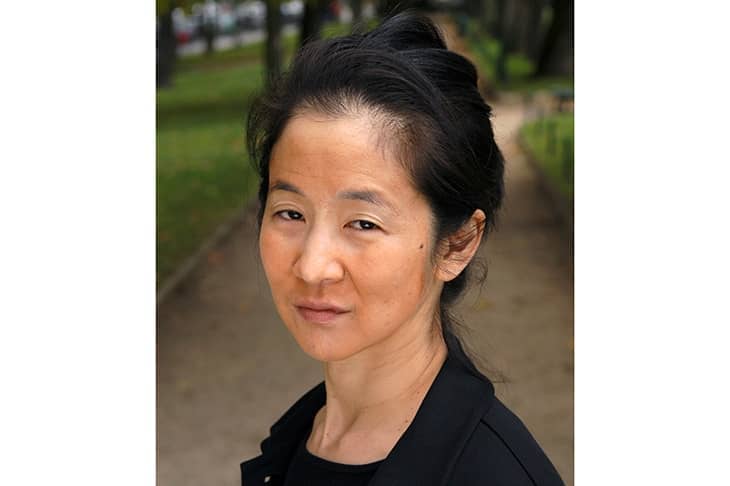Julie Otsuka has good rhythm, sentences that move to a satisfying beat. Even as her tone shifts — from tender to funny to cynical to sinister — the beat goes on uninterrupted. In this, her third novel, the narrative has a steady flow. The Swimmers traces the cracks that develop in an underground pool, and in a woman’s mind, and the slow and unavoidable deterioration of both.
It opens with an introduction to the pool that reads like a guided tour from the swimmers themselves. We learn about their rituals: ‘Some of us have to swim 100 laps every day, others… until the bad thoughts go away (Sister Catherine, lane two).’ There are dos and don’ts and people to watch out for — ‘tailgaters, lane Nazis, arm flailers’. The regulars are quietly suspicious of the everchanging lifeguards — ‘land people, we say’ — and the ‘binge swimmers’ who pitch up every new year. ‘Defer judgment if you can. For they are temporary defilers of our waters, weak-willed interlopers who will not be with us for long.’
For the true swimmers, the pool is a passion, a solace, an addiction; they feel more at home in the water than on dry land. Which makes the crack that develops in the deep end of lane four all the more heart-wrenching. It starts out as a ‘tiny hairline fracture, no longer than a child’s forearm’, disappears and reappears, then multiplies. There’s a gentle but insistent hum of impending doom as inspectors work through a process of elimination to determine the cause. Early defectors take their leave; conspiracy theories abound. Eventually, the diagnosis: terminal. The pool must close.
From the start, Otsuka drip-feeds the reader information about Alice, who ‘up there’ is ‘just another little old lady. But down here, at the pool, I’m myself.’ As the novel switches from group portrait to family portrait, we become privy to the things Alice does and doesn’t recall, and the fact that ‘she remembers less and less every day’. With shrewd characterisation and original observations, Otsuka tells a tale of grief and memory that’s quietly observed yet awash with dark humour and wit. And as Alice trades one community for another, it’s time for her to get to grips with some new guidelines: ‘Here at Belavista we will do everything we can to meet your evolving needs as you begin this next and final phase of your journey.’






Comments